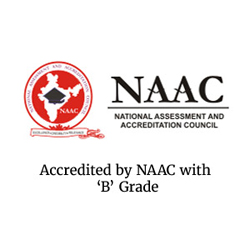http://gonzagacollege.edu.in/wp-content/uploads/2025/11/ICC-2025-26.pdf
Chairperson
Rev. Dr. A John Dayana
Members are:
Ms. J Sakthidevi
Ms. P Shanmugapriya
Dr M Manivannan
Rev. Sr. M Santhana Mari
Mr. V Leo
Ms. K Shandhini
Ms. L Thrisha
Ms. M Devika
Ms. C Arokia Selvi , Advacate
Guidelines for Internal Complaints Committee (ICC) as per UGC
The Internal Complaints Committee (ICC) is established in compliance with the University Grants Commission (UGC) regulations, adhering to the Sexual Harassment of Women at Workplace (Prevention, Prohibition, and Redressal) Act, 2013. The ICC ensures a safe and inclusive environment for all members of the institution.
- Objectives
- To prevent, prohibit, and address incidents of sexual harassment at the workplace.
- To provide a mechanism for the redressal of complaints of sexual harassment.
- To promote gender sensitization and create awareness about the rights and responsibilities of individuals.
- Composition of ICC
The ICC should comprise:
- Presiding Officer: A senior woman faculty member from the institution.
- Faculty Members: At least two faculty members committed to gender equality and social justice.
- Non-teaching Staff Member: A member from the non-teaching staff.
- External Member: A person familiar with issues related to sexual harassment, such as an NGO representative or legal expert.
- Student Representatives: In the case of complaints by students, ICC should include student representatives.
- Functions of the ICC
- Complaint Redressal:
- Receive and address complaints of sexual harassment in a time-bound and confidential manner.
- Conduct inquiries as per the principles of natural justice.
- Provide appropriate recommendations for resolution or action.
- Awareness and Sensitization:
- Conduct workshops, seminars, and awareness programs on gender equality and the prevention of sexual harassment.
- Display posters, and guidelines, and disseminate information about the functioning of ICC and the grievance mechanism.
- Preventive Measures:
- Advise the institution on measures to create a gender-sensitive and harassment-free environment.
- Ensure gender-neutral policies and practices within the institution.
- Reporting and Documentation:
- Maintain confidential records of complaints, proceedings, and resolutions.
- Submit an annual report to the institution’s head and UGC, detailing complaints received and actions taken.
- Procedures for Filing Complaints
- A complaint must be submitted in writing by the aggrieved person to the ICC within three months of the incident.
- The ICC may allow for an extension of this period if justified.
- Complaints can also be submitted by third parties on behalf of the victim.
- Inquiry Process
- Preliminary Assessment:
- ICC will review the complaint to ensure it falls within the purview of sexual harassment.
- Informal resolution through conciliation can be explored before initiating an inquiry (only if requested by the complainant).
- Formal Inquiry:
- A written notice is issued to both parties, detailing the allegations.
- The ICC will hear both parties, ensuring adherence to natural justice principles.
- The inquiry must be completed within 90 days from the receipt of the complaint.
- Report Submission:
- A detailed report with findings and recommendations must be submitted to the head of the institution within 10 days of completing the inquiry.
- The institution must act on the recommendations within 60 days.
- Redressal Mechanisms
- If allegations are proven, appropriate disciplinary action will be taken as per the institution’s rules or service regulations.
- If the complaint is found to be false or malicious, the complainant may face action as per UGC guidelines, ensuring it does not deter genuine complainants.
- Confidentiality
- All proceedings and details of complaints will remain strictly confidential.
- Breach of confidentiality by any member of the ICC or involved parties is subject to disciplinary action.
- Roles and Responsibilities of the Institution
- Provide all necessary facilities for the ICC to function effectively.
- Ensure prompt action on recommendations by the ICC.
- Incorporate measures to prevent and address sexual harassment into institutional policies.
- Display anti-sexual harassment policies prominently across the campus.
- Gender Sensitization and Capacity Building
- Regular gender sensitization programs must be conducted for students, staff, and faculty.
- Ensure that ICC members are periodically trained to handle cases effectively and sensitively.
- Compliance with UGC Regulations
The institution is required to:
- Submit annual compliance reports to the UGC.
- Ensure that its policies align with the UGC (Prevention, Prohibition, and Redressal of Sexual Harassment of Women Employees and Students in Higher Educational Institutions) Regulations, 2015.
By adhering to these guidelines, Gonzaga College of Arts and Science for Women ensures a safe, inclusive, and respectful environment for all its members.

